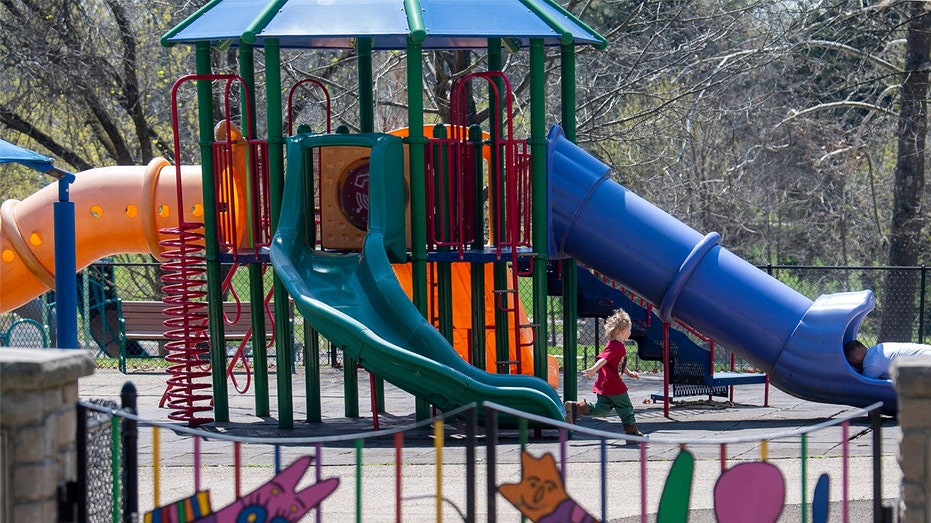What to Know About the Universities That Have Had Their Funding Targeted by the Trump Administration
Harvard is just the latest elite education institution targeted by the Trump Administration to try to force compliance with its agenda.


President Donald Trump has placed the higher education system in a pressure cooker. A number of Ivy League and other elite universities have been forced to make a tough choice: either comply with his Administration’s agenda or lose critical federal funding. [time-brightcove not-tgx=”true”]
Harvard, the nation’s oldest and perhaps most prestigious university, was the latest target. Hours after the school announced it wouldn’t accede to the Trump Administration demands, the federal government on April 14 froze more than $2 billion in grants and $60 million in contracts.
Read More: How Harvard University’s Funding Works
Harvard is just one of several U.S. universities targeted by the Trump Administration to force compliance with its agenda. Pressure is being placed on these educational institutions not only through slashed budgets but also via government orders and probes into schools’ diversity-related practices. Trump has promised funding cuts to schools that pursue diversity initiatives since he was on the campaign trail last year; his Administration has also targeted universities that were involved in last year’s wave of campus protests against the war in Gaza.
Experts have previously warned that such cuts to academic institutions pose a risk for the U.S., a global leader in research and innovation. The impact of taking away government grants—lifeblood for many of these research universities—could include hampering advancements in medicine and technology, and could cost the country economically as well by weakening American competitiveness.
Here’s what to know about some of the major universities the Trump Administration has targeted so far.
Harvard University
On April 14, the Trump Administration’s Joint Task Force to Combat Anti-Semitism announced the freeze of $2.2 billion in multi-year grants and $60 million in contracts to Harvard University in Cambridge, Massachusetts. The freeze came hours after Harvard rejected demands listed in April 3 and April 11 letters from representatives of the Departments of Health and Human Services (HHS) and Education and the General Services Administration (GSA) that sought broad reforms to the university’s operations, including curbing antisemitism and activism on campus and focusing on “merit-based” initiatives. Some of the demands include federal audits of admissions, hiring, and related data, as well as “reducing the power” held by students, faculty, and administrators who are “more committed to activism than scholarship.”
The Trump Administration had previously criticized the university’s handling of protests related to the war in Gaza.
University President Alan Garber said in an April 14 letter that such demands were “direct governmental regulation” of campus conditions, adding that Harvard will “not surrender its independence or relinquish its constitutional rights.”
“No government—regardless of which party is in power—should dictate what private universities can teach, whom they can admit and hire, and which areas of study and inquiry they can pursue,” Garber wrote.
The Task Force, in its announcement of the freeze, said that Harvard’s response to the demands “reinforces the troubling entitlement mindset that is endemic in our nation’s most prestigious universities and colleges—that federal investment does not come with the responsibility to uphold civil rights laws.”
Cornell University
The White House told the media on April 8 that more than $1 billion in federal funding to Cornell University in Ithaca, New York, have been frozen, amid investigations into alleged civil rights violations involving race and religion.
The New York Times reported that the pause on funding to Cornell, as well as Northwestern University, involves grants and contracts mostly from the Departments of Agriculture, Defense, Education, and HHS, according to two unnamed officials.
Cornell officials issued a statement on April 8 that noted while the university hasn’t confirmed the total costs of cuts, it received more than 75 stop work orders from the Department of Defense related to research that is “profoundly significant to American national defense, cybersecurity, and health.”
Read More: Why the Government Historically Has, and Still Should, Pay For University Research Costs
Northwestern University
Along with Cornell, Northwestern University in Evanston, Illinois, was caught in the Trump Administration’s federal fund freezing spree with $790 million put on hold.
Northwestern said on April 10 that it received “more than 100 stop work orders this week for projects funded by the government.” The affected grants, the university said, include “research into wearable devices, robotics, nanotechnology, foreign military training, Parkinson’s disease and many other critical research programs supporting our nation.”
Brown University
Right wing news website The Daily Caller first reported on April 3 that $510 million in federal contracts and grants awarded to Brown University are at risk, as the Trump Administration intends to freeze these over the campus’ response to antisemitism and potential diversity, equity, and inclusion (DEI) policies.
Brown is one of 60 schools being investigated for supposed Title VI violations. Last year, the University was also a hotbed of student protests against the war in Gaza.
According to the Times, the impact of such a funding freeze on Brown would be “significant,” with $184 million coming from federal grants and contracts in 2024.
The University has not provided any more information about the potential funding freeze. But on March 20, president Christina Paxson said in a letter responding to concerns over federal funding cuts that, “if Brown faced such actions directly impacting our ability to perform essential academic and operational functions, we would be compelled to vigorously exercise our legal rights to defend these freedoms, and true to our values, we would do so with integrity and respect.”
Princeton University
The Trump Administration on April 1 suspended $210 million worth of research grants to Princeton University as it probes the school’s anti-antisemitism efforts.
The Associated Press reported that Princeton president Christopher Eisgruber said in a letter to the campus that the university received notifications from government agencies, including the Department of Energy, NASA, and the Defense Department, suspending several dozen research grants.
“The full rationale for this action is not yet clear, but I want to be clear about the principles that will guide our response,” Eisgruber reportedly wrote in the letter. “Princeton University will comply with the law. We are committed to fighting antisemitism and all forms of discrimination, and we will cooperate with the government in combating antisemitism. Princeton will also vigorously defend academic freedom and the due process rights of this university.”
University of Pennsylvania
On March 19, the White House announced it would pull $175 million in federal funding from the University of Pennsylvania. A White House social media account said the pause was over UPenn’s “policies forcing women to compete with men in sports.” The social media post linked to a Fox Business clip that said that the funding came from the Departments of Defense and HHS, with a senior Trump official telling the cable network that “this is just a taste of what could be coming down the pipe.”
The announcement came weeks after Trump issued an executive order on Feb. 5 denying funds to schools that allow transgender women to play in sports that correspond to their gender identity. The day after, the Education Department announced it would investigate UPenn, along with two other entities, for apparent Title IX violations due to transgender players’ involvement in student sports.
In statements to the media on March 19, UPenn said it was aware of the reports but had not received any official details on the freeze. “It is important to note, however, that Penn has always followed NCAA and Ivy League policies regarding student participation on athletic teams,” the university said. “We have been in the past, and remain today, in full compliance with the regulations that apply not only to Penn, but all of our NCAA and Ivy League peer institutions.”
Read More: Inside the Right-Wing Movement to Ban Trans Youth From Sports
Columbia University
Columbia University is also in the Trump Administration’s crosshairs for the protests against the war in Gaza last year. One of its recent graduates, Palestinian Mahmoud Khalil, had been arrested in March by Immigration and Customs Enforcement officials, and is facing potential deportation.
On March 3, agencies making up the Joint Task Force to Combat Anti-Semitism announced they were considering stop work orders for $51.4 million in contracts between Columbia and the federal government.
On March 7, the same task force announced the cancellation of some $400 million in federal grants and contracts to Columbia, “due to the school’s continued inaction in the face of persistent harassment of Jewish students.” According to the task force’s statement, the cancellation is just the first round of actions against the school.
On March 12, the National Institutes of Health (NIH) terminated around 400 grants to Columbia, including those related to biomedical research—for training and research projects, as well as larger awards to Columbia’s Alzheimer’s disease, autism, and cancer centers. The journal Science reported on April 9 that, based on internal documents, NIH is “freezing all remaining grant money owed to the university until further notice.”
On March 13, representatives from the Departments of Education and HHS and the GSA sent a letter to Columbia outlining their demands, and by March 21, Columbia said it had taken additional actions in seeming compliance. It hired 36 “special officers” empowered to arrest or remove people from campus, limited the use of face masks which were once used to conceal protesters’ identities, and adopted a controversial formal definition of antisemitism. Explaining the actions, then-interim president Katrina Armstrong said in a letter published on March 21: “At all times, we are guided by our values, putting academic freedom, free expression, open inquiry, and respect for all at the fore of every decision we make.” Armstrong stepped down from her role a week later.
Columbia’s apparent caving in had been met with backlash from some of its faculty members. Donna Lieberman, executive director of the New York Civil Liberties Union, slammed the university’s accession, saying that “Columbia’s capitulation endangers academic freedom and campus expression nationwide.”
Read More: Columbia University Sees Drop in Applications—and Some Admits Reconsider Enrolling
In a statement on April 14, acting university president Claire Shipman said that while some of the Trump Administration’s demands “have aligned with policies and practices that we believe are important to advancing our mission,” the university would still “reject heavy-handed orchestration from the government”—particularly rebuffing agreements that threaten the university’s autonomy, including those that involve hiring and teaching decisions.




































































